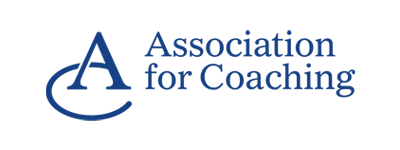Coaching Supervision At CFM
CFM Consulting Ltd offers two types of coaching supervision.
A) Academic Supervision ~ this is where a coach is studying for a professional qualification on one of our programmes. This may be with the University of Edinburgh Business School, The University of Strathclyde Business School or The Institute of Leadership & Management. The supervisor will be allocated to and work with the coach to meet the supportive academic standards of the qualification they are working towards. The fees are covered in the cost of the development
B) Professional Practitioner Supervision (PPS) ~ In this case a supervisor is selected by a coach to work with them for a period of around two years. It is a blend of the three types of supervision mentioned above. Fees are paid by the coach as and when the sessions occur. Frequency of sessions is usually planned to coincide with EMCC standards (1hour of supervision per 30 hours of coaching). Typical supervision sessions last for around 1.5 to 2 hours.
What is Coaching Supervision?
‘Coaching supervision is a formal process of professional support, which ensures continuing development of the coach and effectiveness of his/her coaching practice through interactive reflection, interpretative evaluation and the sharing of expertise’ (Bachkirova, Stevens and Willis 2005).
There are many definitions of what coaching supervision is. By and large they all agree the following:=
• Supervision is a formal process
• It is interpersonal, and can be undertaken one-to one, in groups or in peer groups
• Reflection on client work is central to supervision
• Its goals include developing greater coaching competence
How does supervision work?
Every coaching supervisor has a unique methodology and style, however there is often a similarity of
approach. A typical structure for a one-to-one session, whether conducted face to face or by telephone, could be:
• Check in (sharing recent experiences and feelings)
• Establishing the session focus and desired outcome
• Supervisory discussion on a current coaching client’s situation or issue – this could include tapes of coaching
• Exploring the coach’s personal issues and skill development needs
• Discussing concerns the coach may have
• Establishing learning and commitment to future action
Quality Control
The European Mentoring and Coaching Council (EMCC) has a code of ethics that requires that all members have regular supervision.
From the client’s perspective, the role of the supervisor should give confidence that that there is an element of external quality control over the coaching process, a check that the process is running smoothly and that all key areas are being adequately covered.
The coach themselves needs a safe environment in which they can explore what is happening for them in the coaching relationship. This is very important if the coach in any way feels “stuck” in the coaching relationship, unsure how to move forward.
The EMCC Code of Ethics includes the following statement:
The coach/mentor will maintain a relationship with a suitably-qualified supervisor, who will regularly assess their competence and support their development
What Is The Role of Supervision?
The supervision approach by CFM Consulting Ltd identifies and utilises three main types of supervision found in coaching supervision (Proctor1986)
Normative – the supervisor accepts (or more accurately shares with the supervisee) responsibility for ensuring that the supervisee’s work is professional and ethical, operating within whatever codes, laws and organisational norms apply
Formative – the supervisor acts to provide feedback or direction that will enable the supervisee to develop the skills, theoretical knowledge, personal attributes and so on that will mean the supervisee becomes an increasingly competent practitioner
Supportive (Proctor calls this restorative) – the supervisor is there to listen, support, confront the supervisee when the inevitable personal issues, doubts and insecurities arise – and when client issues are ‘picked up’ by the supervisee
Records
The supervisor will keep records of the supervision for two reasons.
a) Professional supervisors have a continuing professional development aspect to their practice and these records need to be kept for those purposes.
b) Well-kept records will aid the development of the coach through trend analysis and model/solution deployment.
The coach should also keep records for the same two reasons. Well kept records from supervision can aid a coaching qualification and the application of the EMCC European Individual Accreditation.





